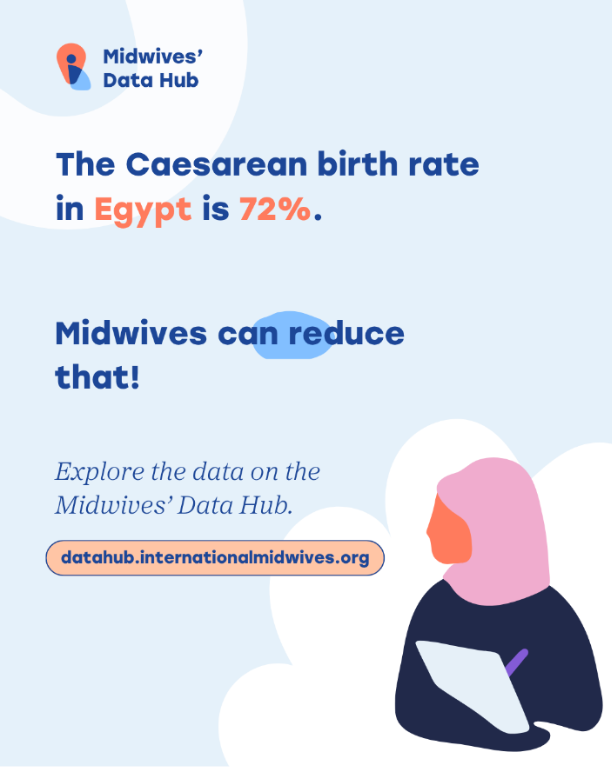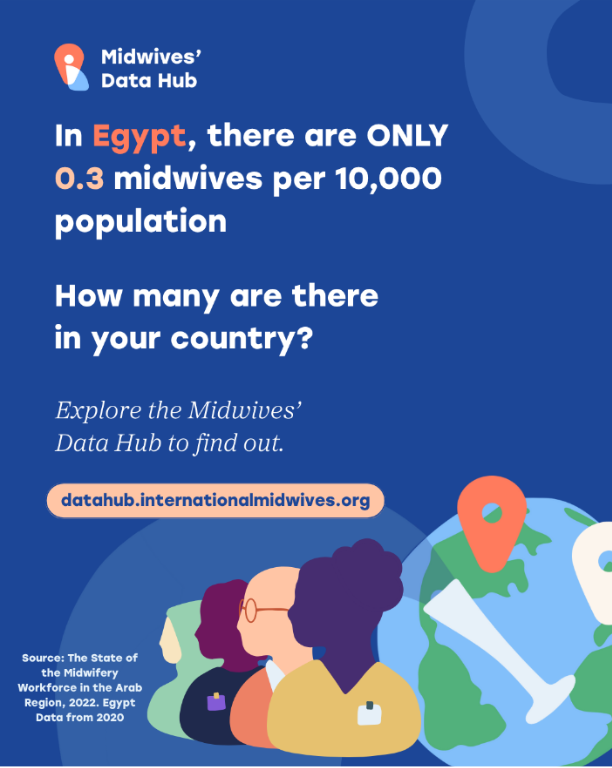Blog by Merette Khalil - PUSH Campaign Lead, ICM
Data alone doesn’t drive change.
Data can, however, help us tell the story and make our advocacy more compelling.
Data gives us scale and sway.
Without data, the needs of women, particularly those from marginalized communities, remain invisible. With the right data and advocacy, we can push for systemic changes that ensure every woman, everywhere, has access to high quality, respectful, woman-centred care. Data helps identify gaps in services, track progress, and hold decision-makers accountable. For example, maternal mortality ratios, rates of skilled birth attendance, or unmet need for contraception reveal where health systems are failing women.
As a doula, childbirth educator, and SRHR advocate, I spent years talking about one such failure: I would cite the statistics, Egypt has one of the highest C-section rates globally; a reported 72% but from the stories of friends, advocates, health workers on the ground, they will tell you a higher number – closer to 9/10. The first question is always: “Why is it so high?” As a health systems researcher, I studied the literature and considered the numerous factors: high demand from women and their families, limited body and health literacy, particularly on sexual and reproductive health and rights due to stigma, the high utilization of an unregulated private sector, the money earned by obstetricians and anesthesiologists, among others. I always considered the missing lever in the Egyptian maternal health system: midwives. For years, I have been advocating for the need for midwives model of care and midwives in Egypt. The evidence is so clear that trained autonomous qualified midwives reduce unnecessary interventions including c-sections.
Today, instead of citing complex causes and providing arduous analyses, using the newly launched Midwives Data Hub, I used two data points to tell a simple story: Egypt has one of the highest c-section rates and one of the lowest densities of midwives globally; now we face the harder question: What will we do about it?


Working on the million-voice What Women Want (WWW) campaigns taught me the power of combining data and storytelling. Imagine when every data point is a person with a story and a demand. When a million women demand respectful care, it’s hard to ignore their voices—it builds a movement.
Listening to communities is powerful because people know best what they need and what solutions will work. By creating a culture of deep listening, we build trust, foster collaboration, and empower communities to lead meaningful change from the ground up. Social accountability—where people have the power to monitor, shape, and improve health and development efforts—is rooted in this kind of collective action. It’s not enough to listen to communities, we must move their demands into action within policies and programs. The successes of these campaigns gave us the winning equation: Advocates came together with the data + (community) demands + (supportive) decision-makers.
According to the What Women Won Report, women’s demands together with data and political will delivered big wins! (These wins give me hope for midwifery advocacy in Egypt!)
The Midwives Data Hub is a powerful database and advocacy tool that consolidates global and national data on the midwifery workforce, education, and investment. Advocates can use it to drive evidence-based campaigns, influence policy, and mobilize resources by highlighting the critical gaps and opportunities in midwifery. By using country-specific data, you can show how investments in midwives directly contribute to improved maternal and newborn health outcomes, universal health coverage, and gender equality. The Hub offers insights into midwife density, training standards, regulatory frameworks, and workforce shortages—essential indicators to demand policy reform, budget allocation, and inclusion of midwives in decision-making.
The Midwives’ Data Hub is now live! Explore trusted global data on midwives, the systems they work in, and the outcomes they help shape—country by country.
Explore it. Share it. Use it to make midwives more visible: https://datahub.internationalmidwives.org